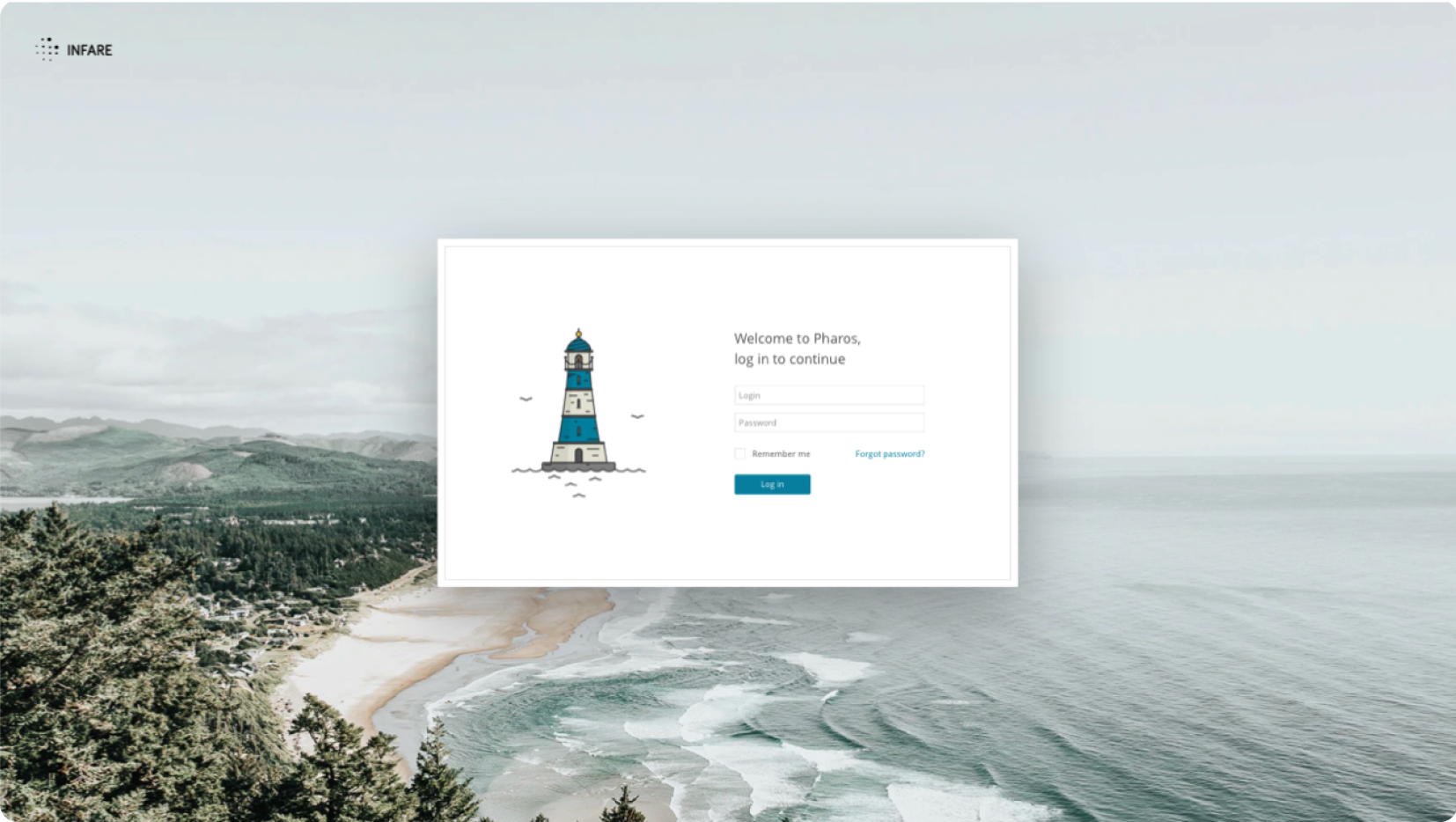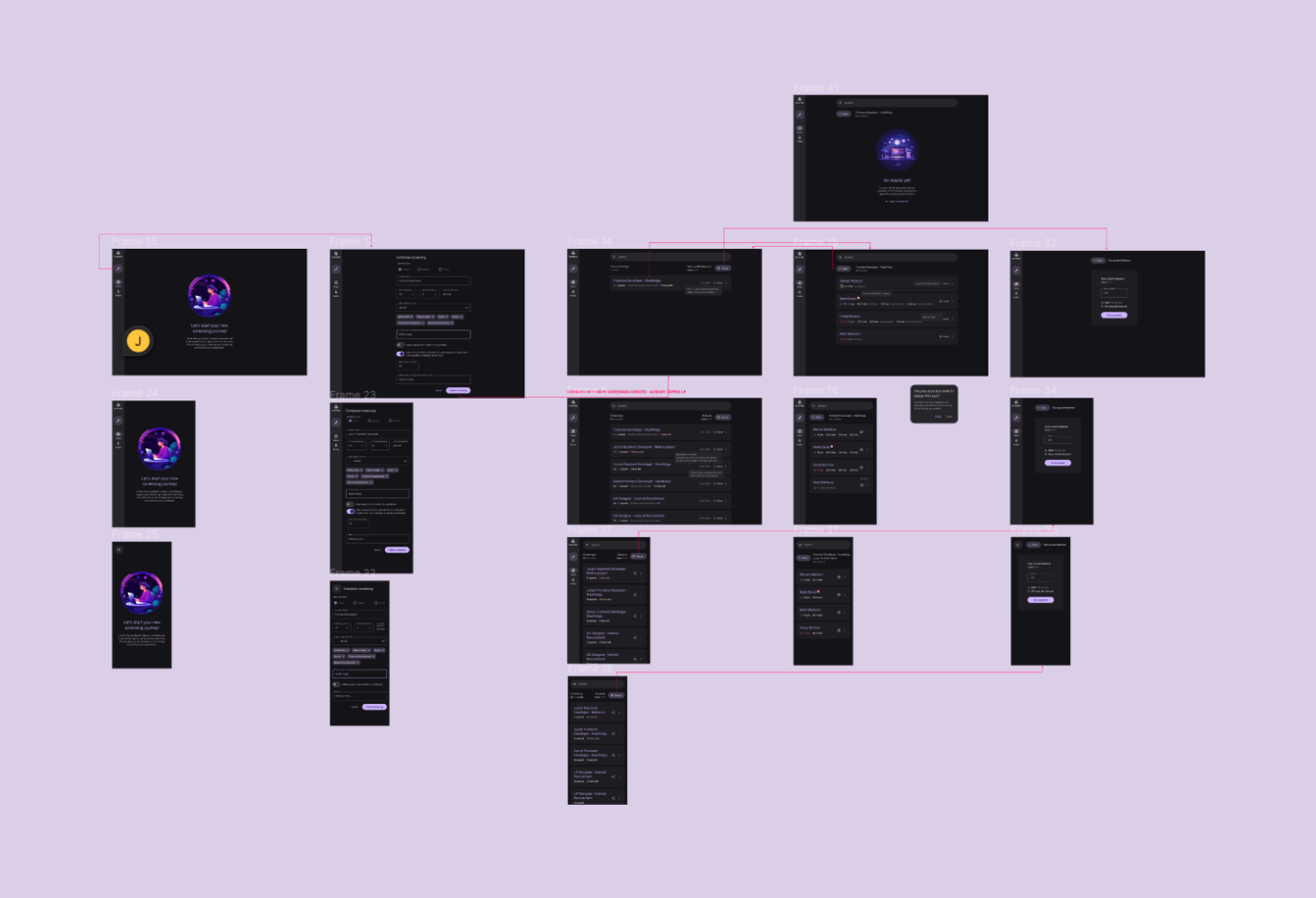For this project, I initiated the design process by developing a high-level information architecture and user flows. To further refine my designs, I created low-fidelity prototypes and tested them with users. Once I had incorporated their feedback and was satisfied with the designs, I moved on to creating high-fidelity designs for the specific screens.
To support future development, I also developed a custom pattern library for the product, which can be scaled into additional components as needed.
Below are some examples that showcase my work and the journey I took to complete the design of this product, starting from the initial conceptualisation to the final design outcome.







Primary objective for this project was to ensure a consistent and seamless user experience across the entire range of data visualisation products. To achieve this, we needed to develop a customised pattern library of components and establish a collaborative process for design and development.
After careful consideration, we decided to implement the Atomic Design methodology and create a comprehensive Design System, which proved to be an ideal solution. Project started by conducting an audit of the product portfolio, followed by the selection of appropriate technologies and designing a holistic user experience. Subsequently, a workflow for the creation of new components was defined and the maintenance of existing elements.
As a result, we successfully achieved the desired outcome of unifying our products, enabling faster delivery of new solutions and fostering stronger collaboration between our development and design team.
I this project I was fully responsible for UX and UI Design.















As Head of Digital Product and sole designer at Adalytica.com, I oversee the entire UX and product strategy.
I’m responsible for the design and direction of multiple data visualization platforms, the main website, and all marketing and sales materials. My work spans from wireframing and prototyping to crafting copy, defining positioning, and running A/B tests aimed at improving user conversion.


Adalytica builds advanced data visualization tools for investors, traders, PR agencies, and media outlets. Our platforms translate complex sentiment and trend data into clear, actionable insights across topics like gold, silver, cryptocurrencies, and more. Each product is tailored to its audience and continually optimized based on user behavior.
Using analytics tools like Microsoft Clarity, I track user behavior and friction points across all touchpoints. Insights from heatmaps, session recordings, and funnel analysis directly inform design iterations. My focus is on conversion, retention, and making data visually intuitive and actionable.


I integrate AI across my workflow to enhance speed and output quality. I use generative tools to create images, write compelling copy, draft wireframes, and explore new layout structures. This automation allows faster iterations and frees time for high-impact decisions and refinement.
My approach is pragmatic: clear outcomes, simple interfaces, and a bias toward action. I focus on usability, not perfection. Every design decision is measured against its impact on user behavior and business metrics.


Since leading the UX and product direction, we’ve grown monthly subscriptions from 5 to over 40 - a 700% increase. This growth is driven by a user-first design approach, clarity-focused UI improvements, and strategic product expansion. I also shape the roadmap, helping define what we build next and how it fits our evolving audience.

Approach to this project began with a thorough review of the already gathered documentation and requirements, allowing me to gain a comprehensive understanding of the client's needs. We then set out to design and develop a platform that would enable advisors to handle multiple portfolios for their clients, review and update them on a daily basis, and share them with clients.
One of my key goals was to ensure that the platform was easy to use and intuitive for both advisors and clients. I also wanted to ensure that the platform was customisable and adaptable to the needs of individual advisors.
Although there was no initial plan to synchronise the platform with digital crypto wallets, I made sure to build the platform in a way that allows for this functionality to be added in the future, as the client's needs evolve.











In Screenify, we began by defining a problem: recruiters often struggle to validate the expertise of specialists, which can lead to wasted resources and missed opportunities.
To address this challenge, I conducted a workshop to explore potential solutions. Ultimately, we decided to develop a screening tool. With this tool, recruiters define the specific skills they are seeking and the screening size. This allows them to efficiently verify their candidates' skillsets and make more data-driven decisions. We also decided, that whole tool will be developed with Material Design Pattern Library.
In this project, I'm responsible for UX/UI Design, Research, Visual Identity, and website development with Webflow.







